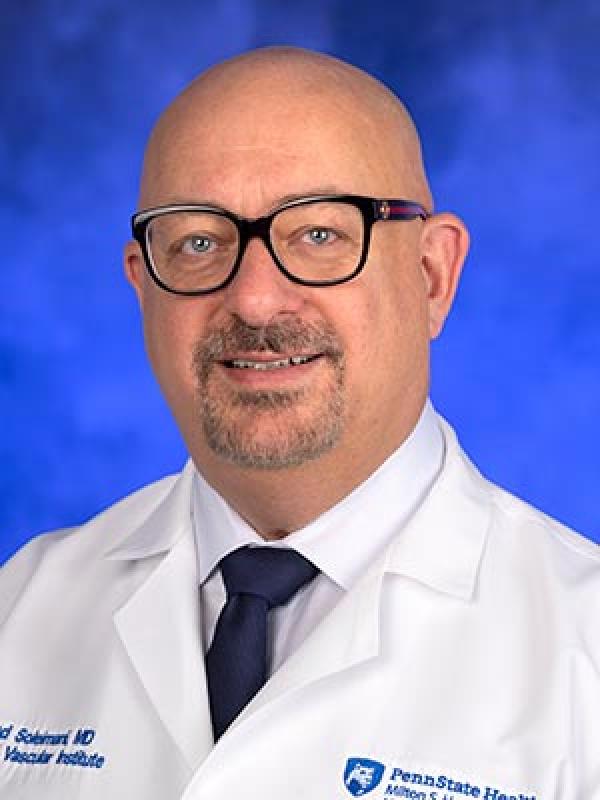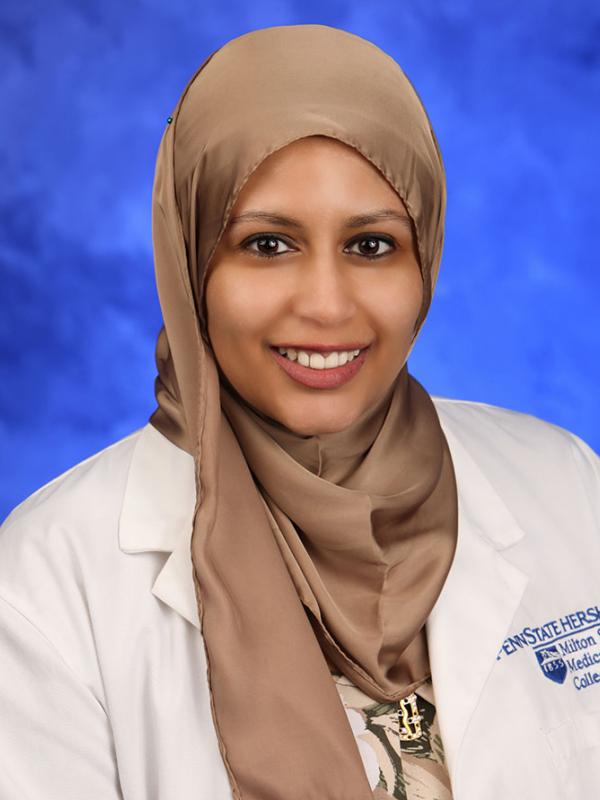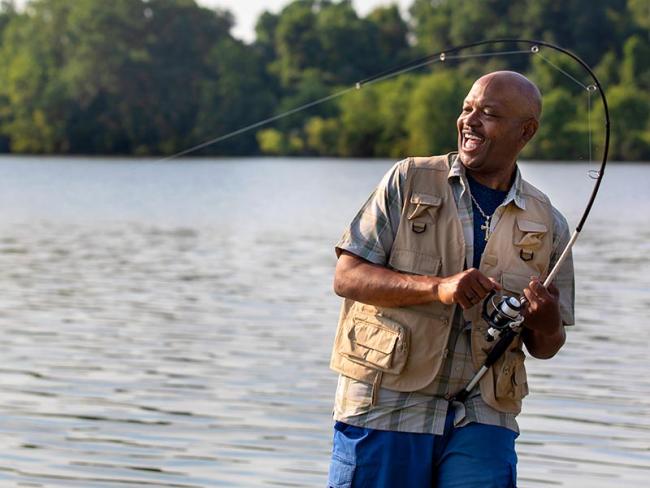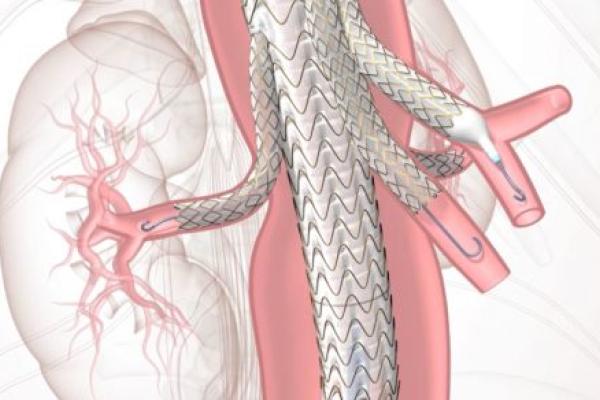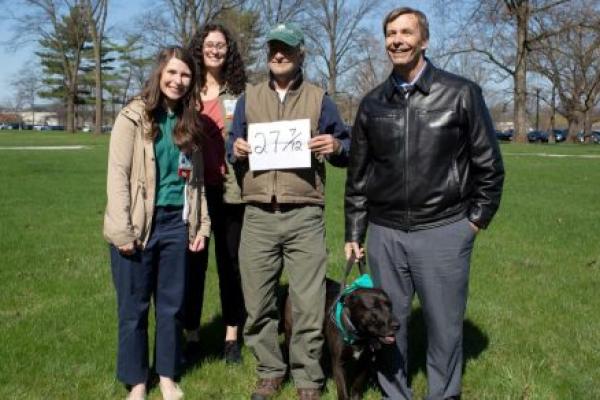Another Chance, With a New Heart.
Lois Angelisanti was preparing for ankle surgery when tests showed she was having a heart attack. She had no symptoms. Then, tests revealed her heart had been damaged by multiple unnoticed heart attacks. As nonsurgical treatments began to fail, she found new hope in the Heart Transplant Program at Penn State Health Milton S. Hershey Medical Center. Today, Lois greets each day with gratitude – for her new heart, for the donor who made her life possible and for the skilled surgeons at the Milton S. Hershey Medical Center surgeons who restored her life.
The Penn State Health Approach to Heart Transplant
Heart transplant surgery replaces a weakened or diseased heart with a healthier donor heart. According to the United Network for Organ Sharing, only about 3,600 people in the U.S. received a donor heart last year.
If you’re a candidate for a heart transplant, you can trust the Heart Transplant Program at Penn State Health Milton S. Hershey Medical Center. Our program is recognized worldwide as a pioneering center for heart transplants. Cardiothoracic surgeon Dr. William S. Pierce led development of the first pneumatic heart assist pump at the Milton S. Hershey Medical Center in 1975. We’ve performed more than 540 transplant surgeries since our program started in 1984. More than 200 heart transplant recipients receive follow-up care at Hershey Medical Center.
Why Choose Penn State Health for Care
People from across the region come to us to receive heart transplant surgery.
Nationally Recognized Leaders
Our Heart Transplant program routinely achieves one of the best survival rates in the nation. According to data from the Scientific Registry of Transplant Recipients (SRTR) released in July 2023, 95.24% of patients who received a heart transplant at Hershey Medical Center between July. 1, 2017, and December 31, 2019, survived three years after surgery. The national average three-year heart transplant survival rate for that same time period is 87.32%.
In addition, 100% of patients who received a heart transplant at Hershey Medical Center between January 1, 2020, and March 12, 2020, survived one year after their heart transplant. That’s higher than the national average one-year heart transplant survival rate of 91.23%.
Safe Transport for Donor Hearts
Hershey Medical Center is the first heart transplant program in Pennsylvania and just the 24th nationwide to use the Paragonix SherpaPak® Cardiac Transport System. It’s a leak-proof, temperature-controlled container that keeps hearts safe during transport from the donor hospital to the receiving hospital. Clinical studies show that hearts transported with SherpaPak have better post-transplant results. SherpaPak also allows hospitals to harvest hearts from further away.
A Comprehensive, Multidisciplinary Team Approach
Our team approach to heart transplant includes surgeons, cardiologists, intensivists, anesthesiologists, nurses, nurse practitioners, nurse coordinators, pharmacists, social workers, financial counselors and nutritionists. We also have a team of heart transplant coordinators who guide patients through every step of their transplant journey.
Symptoms, Diagnosis and Outlook
Heart transplant surgery offers treatment for end-stage heart failure, a condition where the heart muscle fails to pump blood efficiently to the rest of the body due to a damaged or weakened heart muscle. Doctors will recommend transplant surgery when other treatments have failed.
Causes of a weakened heart muscle may include:
- Advanced heart failure
- Coronary artery disease
- Heart problems you’re born with (congenital heart defects)
- Heart valve disease
- Irregular heartbeat (arrhythmia)
- Progressive weakening of the heart muscle (cardiomyopathy)
Experts in Care
Meet our heart transplant surgeons, and view their profiles.
Transplant Cardiologists
Your care during your evaluation for transplant, while you are on the waiting list for transplant and after heart transplant will be managed by our transplant cardiologists. They are highly trained and experienced experts in advanced heart failure and transplant cardiology. Some members of the team have led large clinical trials of new transplant medications that have become the standard of care and resulted in improvements in clinical care of heart transplant patients. They also helped to develop blood tests that can detect rejection after transplant and help manage patients.
Members of the transplant cardiology team also write the guidelines for the care of heart transplant patients that are followed by transplant cardiologists around the world.
This is Dave's Second Chance
Who doesn’t want a second chance in life? Sometimes we all do. Dave Gravette found his with an answered prayer and a life-saving heart transplant at Penn State Health Heart and Vascular Institute.
Sharing Their Heart Stories
A few of the 500+ heart transplant recipients share what the gift of life has given them.
Support Groups
Heart Transplant (Adult)
Hershey Hearts is a peer support group for heart transplant recipients, patients waiting for a heart transplant, their families and caregivers. The group will be...
Hershey Hearts is a peer support group for heart transplant recipients, patients waiting for a heart transplant, their families and caregivers. The group will be facilitated by Eric Popjes, MD. The format of the group will be flexible to meet your expressed needs.
Each session features a guest speaker and is followed by time for group members to share experiences, questions and offer support.
For future dates and topics, please contact the Cardiac Transplant Office at 717-531-7459.
Convenient Locations
Find the care your family needs, close to home, at one of our many locations throughout central Pennsylvania.
Find a location near you



